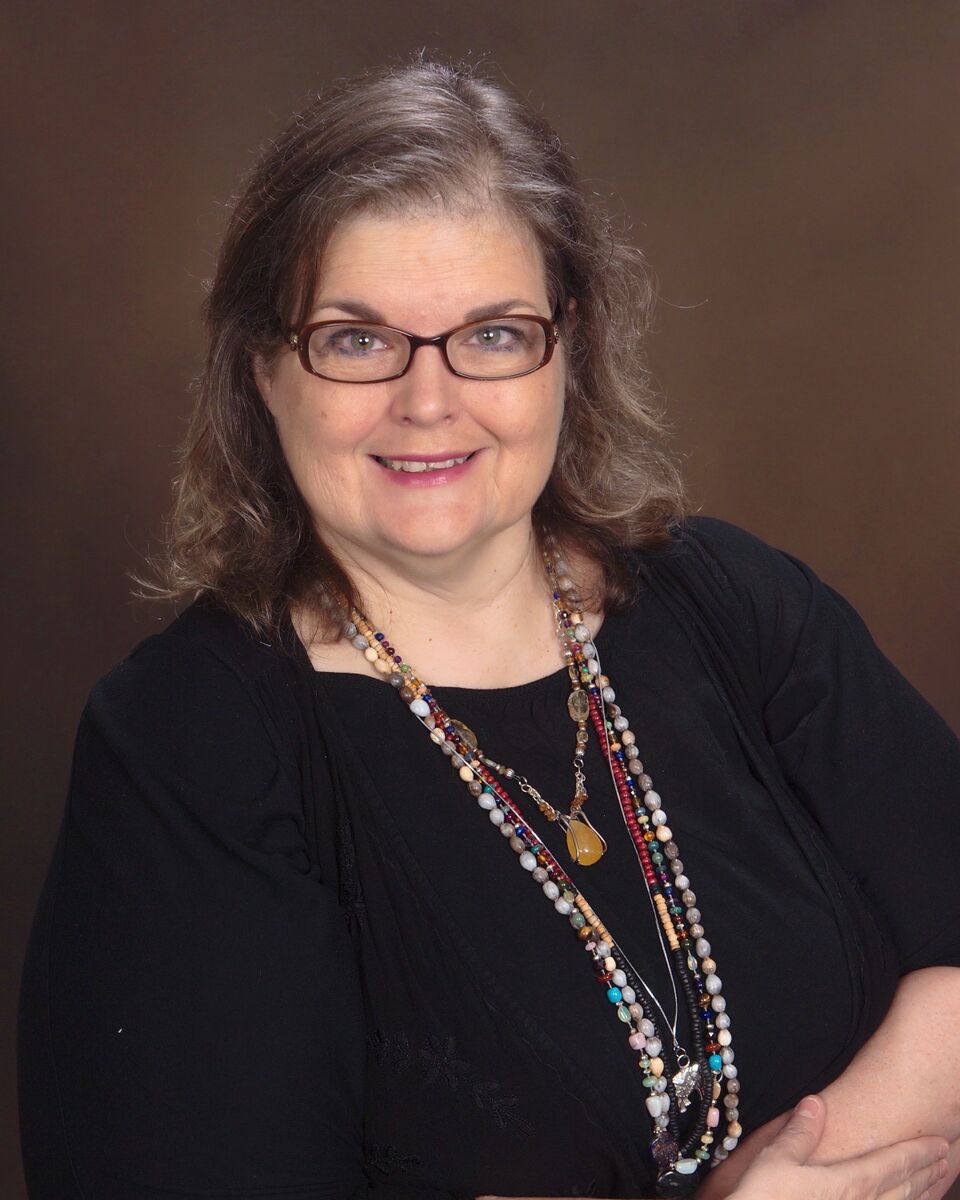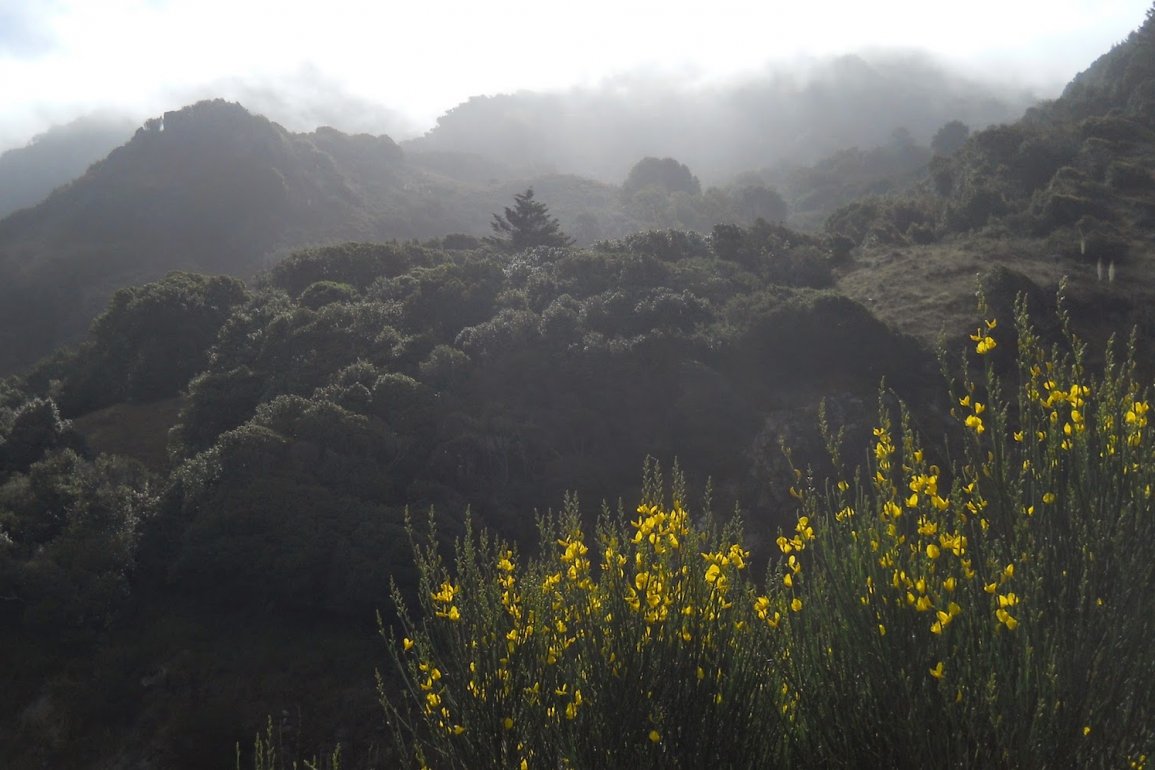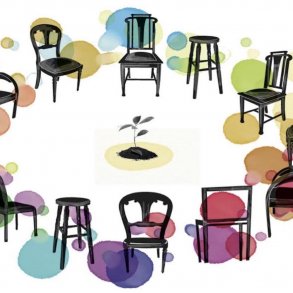By J. Kim Wright for Enlivening Edge Magazine
We want to be able to plan.
We want to have some certainty.
We want to know what is coming next.
Security has always been an illusion but nowadays we are more present to that than ever before. For many of us, our very survival is in question. What if I get the virus? Will my family be okay? Will I lose friends? We don’t know if our livelihoods will continue. Will we lose our homes? Will our organizations survive? What will happen to our economy? Our society?
There are lots of questions. Not so many answers.
For those who have lived a predictable life where they lived in one place, got up in the morning, went to an office at the same time, and did the same job every day, this does not seem like an opportunity. Organizations are seeking actions appropriate for a new normal…but no one knows what that will be. Is that high-rent building even necessary? Will people need our services?
Lockdowns have separated us from our larger context. Our organizations, institutions, governments, and society are not as relevant when we are locked in our homes alone or with only close family. If we are a leader of an organization, we might be torn between pulling up the drawbridge and reaching out to others.
For those for whom change management has been a cornerstone of their experience, we might not have realized how much stability we counted on.
Not so long ago, we always expected that the Rule of Law would prevail. There would be a stock market. There would be many options for a resourceful, resilient person to make their way in the world. One such resourceful, resilient friend told me yesterday “All of my backup plans have disintegrated. I always thought I could go back to my old career if the new one didn’t work out. Now the old career doesn’t exist anymore and the new one evaporated overnight.”
Humans hate change (even those who purport to be change managers). Our brains interpret change as a threat to our body and release hormones that have us want to fight, flee, or freeze. (And, according to a Harvard study, women respond by wanting to gather in groups which just loops us into a whole other level of fear in this locked-down world). Change managers might be experts on change because they fear it most and want to control it.
This week, I came upon a financial advisor’s website that purported to be able to predict the future 18 months in advance. I wonder what they were telling their clients 18 months ago? Did they predict this? And, if they did, what did they advise? If these people know what is happening 18 months from now, I’d like to have a glimpse at their crystal ball!
So, what do we do now?
Perspectives from Spiral Dynamics
Most of the readers of Enlivening Edge Magazine are aware of Spiral Dynamics Integral by Don Beck, the work on Integral Theory by Ken Wilber and the book by Frederic Laloux called Reinventing Organizations.
All of these explore the world through stages of development of consciousness which are connected to life conditions and values. The stages are assigned colors, shorthand for broader concepts.
One of the lessons of Spiral Dynamics is that people can and do regress during periods of stress. A pandemic is pretty much the definition of global stress.
Many people are activated at the Beige level: how will we survive through this? Purple senses of belonging and tribe are threatened by the distances between us. Red energies in US society have triggered long queues at gun shops. Blue is desperately seeking control and order.
Orange is rushing to strategically move money to safe havens while screaming that we should be listening to the scientists. Green wants us to all come together and finding ways to use technology to circle and process. Spiral wizards are hypothesizing that this threat to the global survival might be what needs to happen to move to the Second Tier as they get busy trying to arrange what’s best for people at every stage of consciousness development.
All that feels chaotic and disorganized. Everyone going in a different direction, trying to either create a new normal or return to the old.
What can we do? Below, I’m sharing the best advice I’m reading and experiencing, intertwined with some Spiral Dynamics lessons.
Stop. Take a deep breath … or a few of them.
We’ve been moving at such a rapid pace; we even have an English expression that “we can’t hear ourselves think.” Now we can take that breath. Do what you absolutely have to do but don’t try to force more.
Consider that we are in the Spiral Dynamics world of Beige: our survival instinct is triggered at many levels. We need to calm ourselves, get out of emergency mode. The simple solutions are probably best. Complexity requires higher functioning.
Reach out and connect.
Purple tells us to reach out and connect with our tribe and traditions. Collaborative music projects (like this one, this one and this one) have sprung up around the world, both in neighborhoods and online to remind us that we are part of a bigger community. There is a boom on social media, web-conferencing tools, and old-fashioned phone calls. Don’t reach out for the sake of staying busy. Connect with those who define your sense of belonging.
Personal Power
Ultimately, the only power to which man should aspire is that which he exercises over himself. Elie Wiesel
Red is really interested in being in control. Uncertainty at this level is panic-inducing. How can we get power and control?
The other day a friend was telling me that he’d gone overboard on chocolate and he was concerned that he was gaining weight during his lockdown. He is very committed to his health and this wasn’t okay with him. There are dozens of memes that are pointing to the same issue but my wise friend saw the opportunity in his circumstances.
He cut out all chocolate from his diet, taking control of the thing that seemed to have so much power over him, the one thing in his life that seemed controllable. The next day, he noticed that he got up wanting to go for a run. So, he did. And a week later, he remarked that he felt very strong and centered, in his power.
Far be it from me to recommend giving up chocolate in these times! But my friend has different priorities and values. What are yours? How can you anchor yourself to those values, make your decisions from there, and remind yourself of what is important when everything else is uncertain?
Is it contribution that is most important to you? How can you contribute to others in this time? Perhaps you’re most committed to connection and it is time to reach out to your loved ones with a phone call? Or to take a walk in Mother Nature? Or to create art?
Find a Certainty Anchor.
A couple of years ago, I found an author called Jonathan Fields. My brain sorts for lawyers so it got my attention when I saw that he had been a lawyer before he turned to writing. In his recent newsletter, he said:
“A certainty anchor is a practice or process that adds something known and reliable to your life when you may otherwise feel you’re spinning off in a million different directions. Rituals and routines can function as certainty anchors; their power comes from the simple fact that they are always there.
“They are grounding experiences to which you can always return, no matter what’s going on. Their consistency makes them effective tools to counter the anxiety that comes not only from living in uncertain times, but from embracing endeavors that ramp uncertainty even higher.” –Jonathan Fields, author of Uncertainty
Our Blue consciousness craves the stability of more orderly, predictable life. If your daily routine has been disrupted, find a new one. It can be something simple. A walk at sunset? Time on the meditation cushion? What is your new grounding routine? I like the British custom of taking a break with a warm cup of tea.
Control the Flow of Information & Look at the Big Picture.
Orange consciousness is most known for keeping score with money. It is also about science, evidence, and strategy. Pay attention to what is true, what the scientists are telling us, and try to avoid the opinion-mongers who are fanning the flames of fear.
Having said that, the 24-hour news cycle pumps out more information than any of us can consume. Choose some reliable sources and, if you must, a contrary source of information just to keep you balanced.
This is not the time to try to force something to happen. People, institutions, and systems are not on the old timeline. Strategize about how to meet your needs and those in your circle. Take the broad view.
Billionaire entrepreneur Mark Cuban on Wednesday warned companies against sending employees back to work too soon during the coronavirus pandemic.
“Not only is it a safety issue, it’s a business issue,” Cuban said on CNBC’s “Markets in Turmoil” special.
“How companies respond to that very question is going to define their brand for decades. If you rushed in and somebody got sick, you were that company. If you didn’t take care of your employees or stakeholders and put them first, you were that company,” he added. – CNBC
Own Your Vulnerability.
“We have collectively hit weary. This is especially true for the brave folks on the front lines of this pandemic and for the people who love and support them. And, it’s also true for all of us…We are coming to the end of our adrenaline surge. We are standing at the gaping mouth of the end of normal and we are feeling swallowed. I want to normalize that for everyone.
“Unfortunately, the COVID-19 pandemic crisis is not going to be a crisis that follows the natural rhythm of things. It is not a sprint; it is going to be a marathon. Without shifting mindsets, the fear of collapsing will become the actual collapsing. …We need a way to think about this right now that moves us out of crisis and adrenaline-fueled thinking into something longer”. -Brené Brown, Unlocking Us podcast, 27 March, 2020.
As frustrated as some of us get with Green-consciousness’s preoccupation with values, there is a lot of wisdom in them for these times.
Listen.
Settle down. Listen to what wants to happen. You’ve probably all read people who are posting “messages from the virus.” Nature does talk to us and our collective is hearing similar messages across countries.
If we listen now, I think we will hear a loud demand to settle down into one place, be with those who are very closest to us, take down-time, catch up on what hasn’t gotten done in our busyness. Sort out what is important and let go of the rest.
Grieve the Loss of Normal.
“Just as going to the airport is forever different from how it was before 9/11, things will change and this is the point at which they changed. The loss of normalcy; the fear of economic toll; the loss of connection. This is hitting us and we’re grieving. Collectively. We are not used to this kind of collective grief in the air.” — David Kessler in the Harvard Business Review
Grief has stages and it doesn’t follow a linear process. We have suffered real losses, some of us more than others, and we’re anticipating other losses, the likes of which we can’t yet know.
Have Compassion.
Cut yourself some slack. In our busyness, we often skip through and don’t stop to feel. That disappointment last month was in the middle of a busy day and you filed it away to process it later. Don’t be surprised if all that you have been avoiding feeling comes cascading in. Let it be. Perhaps it is your time to heal that, too.
Cut others slack, too. Pretty much everyone is stressed and relational skills are among the first to go.
In fact, it is one of my stress monitors. Stress has been such a part of my daily life, I sometimes don’t realize when it creeps up past the normal limits.
Then I will notice that I’ve snapped at some poor clerk in a store, or at my dear mother who would do anything for me. At such times, I see that stress has overcome my commitment to relationships and connection.
Then and only then, imagine the future you want to create.
This is not the time to make careless decisions and to plan as though life is going on as it always has. We are not in the old normal and we have not yet created the new normal. We’re in a time of transition between paradigms.
We could take a big leap forward into the Second Tier consciousness most of us been working to create (whether we know the label or not) or we could regress back to armed camps and protected territories.
In our quiet moments, we can better discern: What is it that these circumstances have made possible? How can I create a new, flexible future that is resilient in the face of the volatile, uncertain, complex, and ambiguous future that lies ahead?
In this Enlivening Edge community, we are guided by purpose and values. We are changemakers and we practice conscious creativity. These are our secret weapons against these times.
As the world spins around us, it is an opportunity to put all our tools to work so we can bring ourselves back to what is most important to us and we can choose to act in alignment with those. We actually were made for these times.

J. Kim Wright is the author of two American Bar Association best sellers: Lawyers as Peacemakers, Practicing Holistic, Problem-Solving Law and Lawyers as Changemakers, The Global Integrative Law Movement. A lawyer since 1989, she is a systems change architect for the legal profession. She is an American nomad. http://www.jkimwright.com
Featured Image photo by the author.




